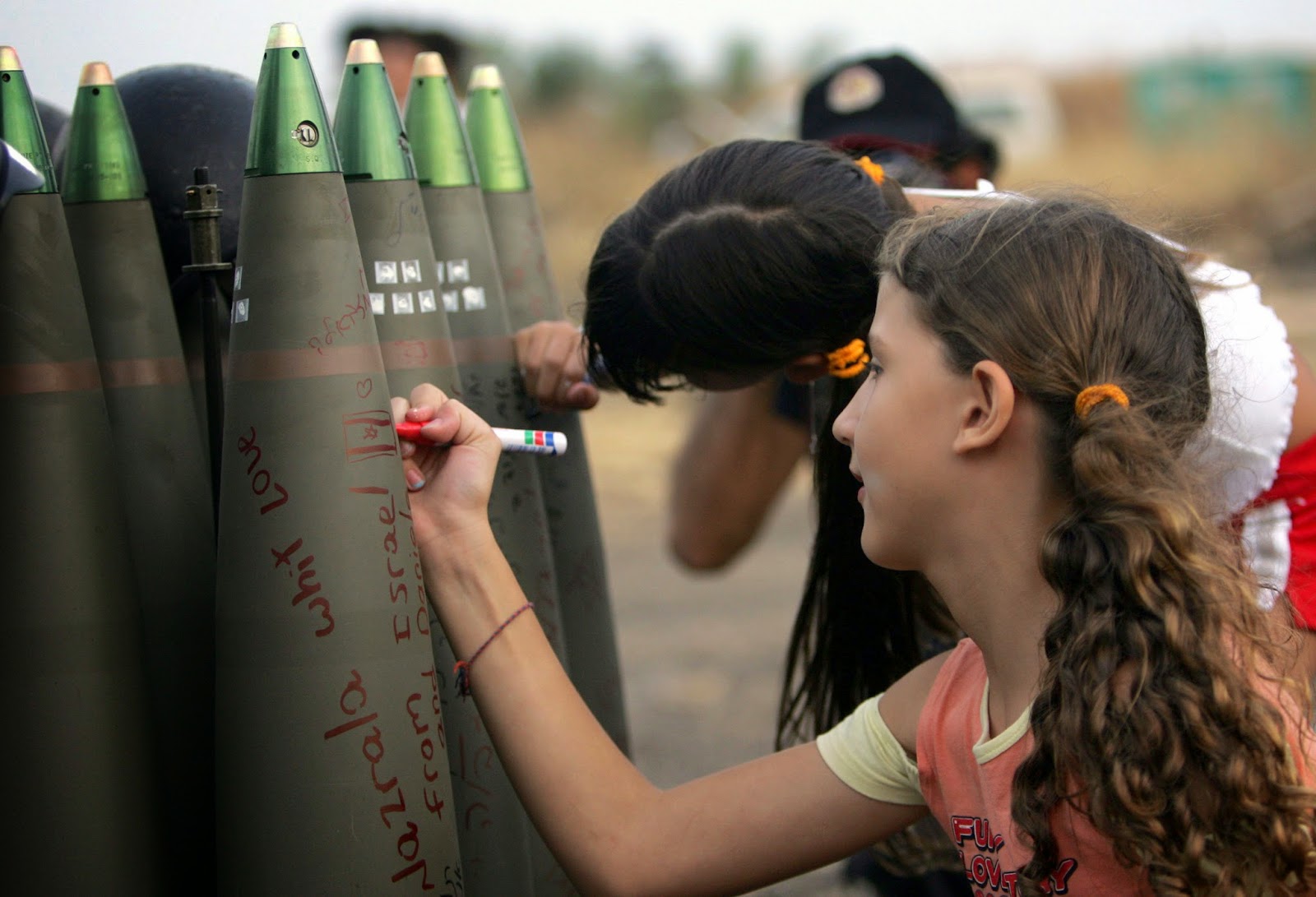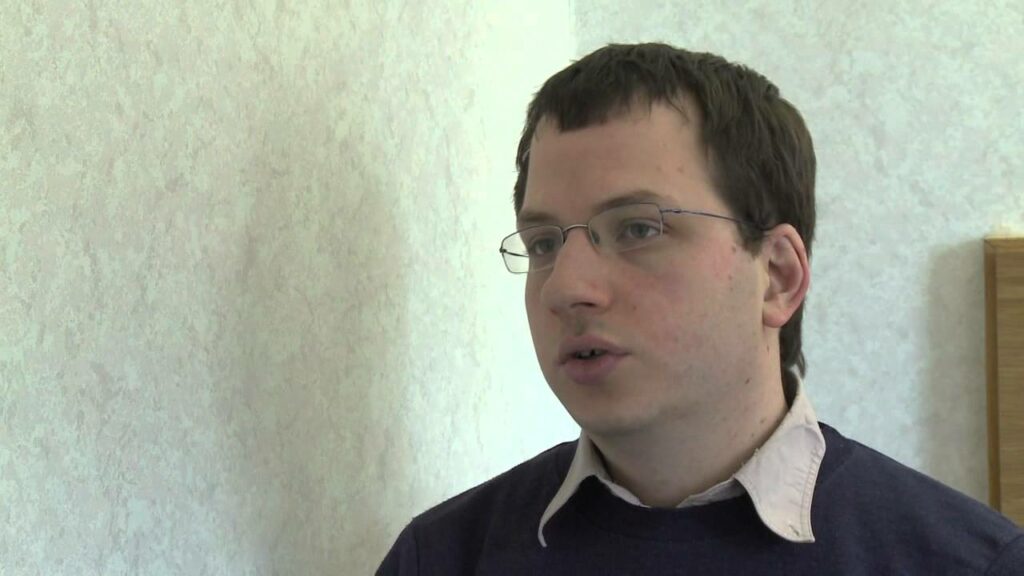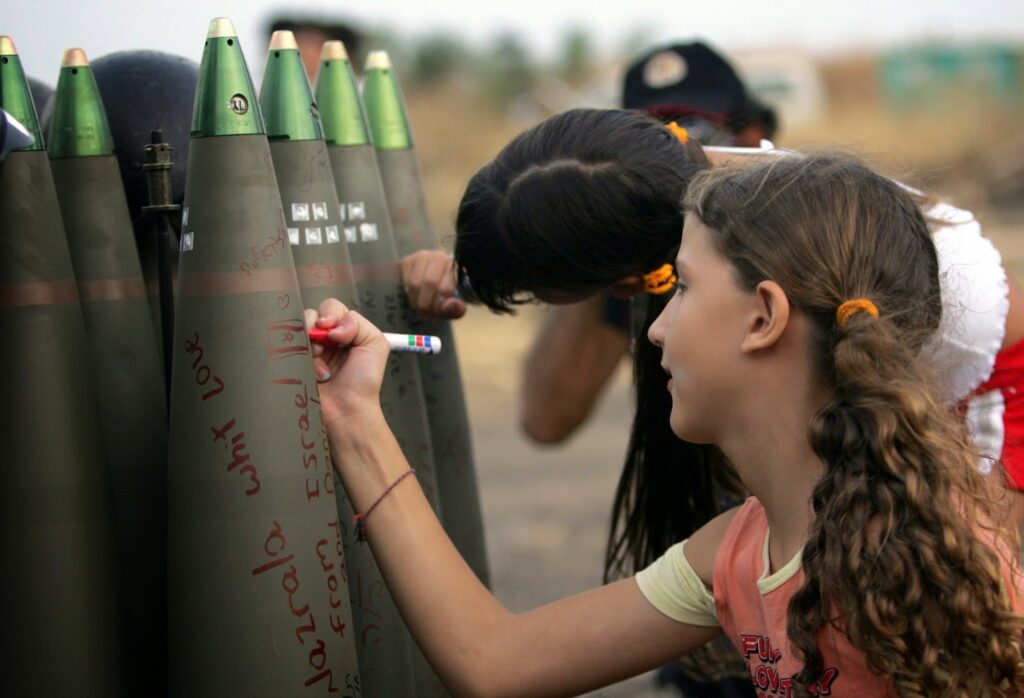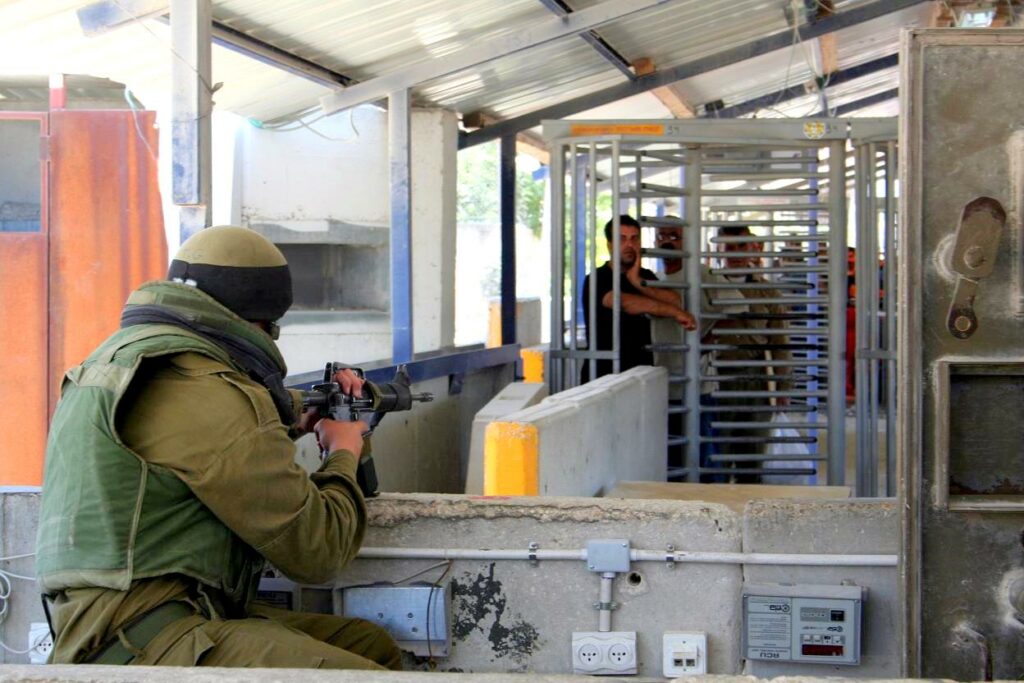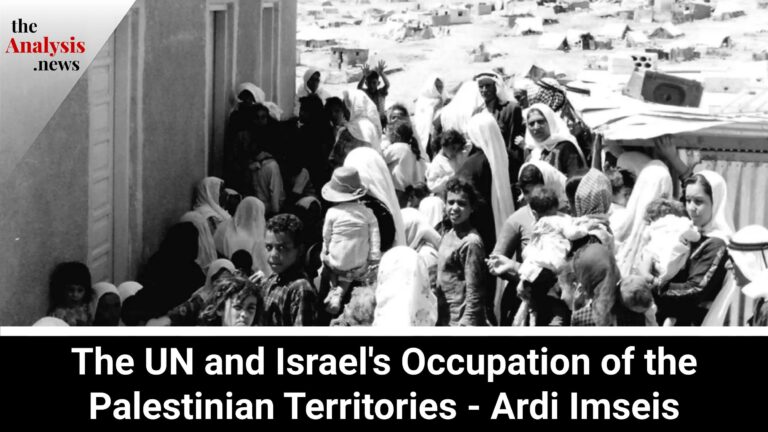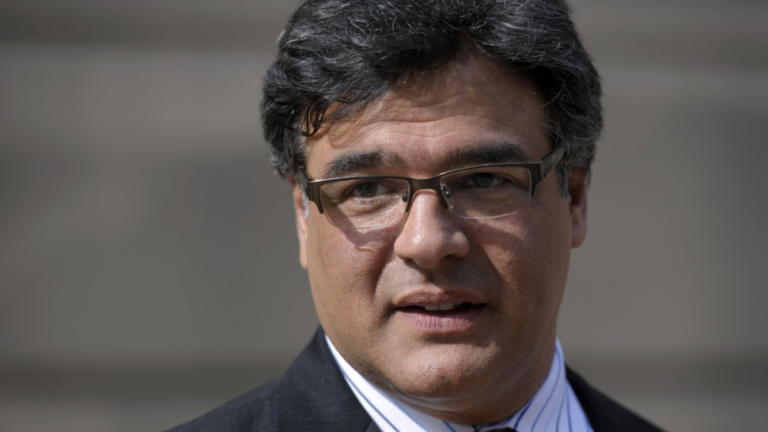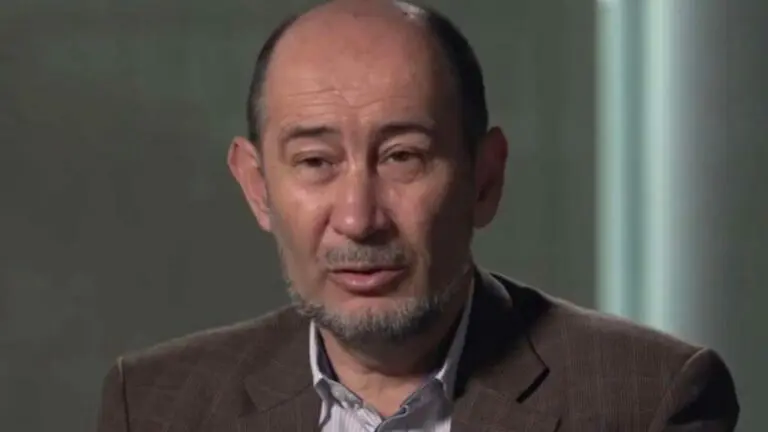This interview was originally published on July 10, 2014. Mr. Hever says in colonial conditions the master fears and hates the servants who might rise up and demand their rights.
PAUL JAY, SENIOR EDITOR, TRNN: Welcome back to The Real News Network. This is Reality Asserts Itself. And we’re continuing our series of interviews with Shir Hever, an Israeli political economist who now joins us in the studio.
Thanks for joining us again, Shir.
SHIR HEVER, ECONOMIST, ALTERNATIVE INFORMATION CENTER: Thanks for having me.
JAY: And one more time, Shir is an economic researcher–. …
Shir is an economic researcher in the Alternative Information Center, a Palestinian-Israeli organization active in Jerusalem and Beit Sahour.
Am I pronouncing that correctly?
HEVER: Yeah.
JAY: Not far? Okay.
And he’s working on the political economy of the Israeli security state. His first book was The Political Economy of Israel’s Occupation: Repression beyond Exploitation–came out in 2010.
So let’s pick up the conversation where we were. One question that I know progressive secular Jews in North America always ask and a lot of people ask everywhere, which is: how does a population that begins, first of all, having suffered so much from fascism, which one normally thinks inspires a Democratic response, an antifascist response, a people that to a large extent were involved in progressive politics in Europe–and North America, ’cause many people that wound up going to Israel actually, you know, came from the United States, and somewhat from Canada–a people who you would think would know better, and you wind up with a society now that is as racist as any place I’ve ever visited, personally. I have never, I have been nowhere on the planet where I have heard in casual, normal conversation such overt, out-and-out racist language and attack, including–. I mean, I’ve spent a little bit of time in the American South, and I’ve never heard anything quite like what I heard in Israel just a couple of years ago. So how do we get from there to here?
HEVER: I think there’s something to be said about stereotypes, and there is a kind of stereotype about Jews that–there used to be a stereotype about Jews as being a very weak and frail kind of people who are supporting human rights because they don’t have the strength to defend themselves. And that’s obviously a racist stereotype, just as much as the stereotype that says that Jews are violent brutes that just want to kill Palestinians and are inherently hateful towards Palestinians. And this is something–I mean, I grew up, like anyone in Israel, learning the story of the Holocaust and repeating it year after year. But I learned it in the sense of the Holocaust is a universal story. So the Germans were not particularly evil. They were–these were circumstances that made a certain atrocity come into this world. And it’s unfortunately not unique. This kind of dark side exists in all human beings.
And so the Zionist movement has attracted some of the worst Jews around the world, those people who wanted to use force to get more property and more land. It also attracted people of completely different ideals; it also attracted very progressive people; but those were, unfortunately, somewhat sidelined, because Israel became this kind of very authoritative country–state in which Palestinians have very little if any rights.
JAY: Yeah. Why and how was the left of Israel so sidelined?
HEVER: I think this is something that happens in any kind of colonial situation, because in a colonial situation, it’s dominated by fear. You know that you have your servants around you, and the servants might rise up against you at any moment. And in this kind of situation, the left tends to be very weak, because the left is in a position where they don’t want to say, we know what’s good for the natives better than the natives, and you cannot say, well, let’s just have equality if you’re in constant fear that then there’s going to be a big revolution and you’re going to lose your property. And the right-wing is saying, we have to keep repressing those natives so they don’t rise up, in any way possible. And that voice tends to win. And it’s not–it didn’t happen just in Israel; it happened in every colonial power that ever existed.
JAY: But is it also not something specific? Which is, as you described in the first segment, including your parents, the left in Israel mostly–maybe not all, but mostly believed there did need to be a Jewish state, and that Jewish state should be more Democratic, that Jewish state should have better relations with the Palestinians, that Jewish state should have–give more rights, and all the rest. But as long as you’re kind of fixed on this idea there has to be a Jewish state, the kind of natural outcome is this colonial, repressive state. Like, you can’t get the Jewish state and still have all the nice features you would like it to have.
HEVER: I think because of the Holocaust, the Zionist movement is more varied than other colonial movements. The Zionist movement is much more diverse, and there are people who call themselves Zionists who were not pro-colonial and who are not racist and who say, my ideal of Zionism is that Jews will be also allowed to live as equals in a Democratic state, which I think is not an exaggerated thing to say. So that also exists within the spectrum of Zionism.
JAY: And I think it should also be–it’s important to point out that a lot of Jews went to Palestine (it becomes Israel) ’cause there was nowhere else to go.
HEVER: Yeah.
JAY: The United States, I mean, you know, in fact the Zionists helped persuade Truman not to let too many Jews in that were sitting in refugee camps in Europe. Canada didn’t want too many Jews from the refugee camps in Europe. I mean, the Zionist movements helped manipulate that.
HEVER: And we cannot forget the complicity of the Arab regimes in those countries where they felt Zionism is another colonial movement against the Middle East and we have to reject Zionism, and then made the same mistake that we see again and again of equating Jews and Zionists and taking out their aggressions against Jewish communities in Iraq or Syria or Morocco or Tunisia.
JAY: And forcing people out.
HEVER: Yeah. And that, without that, there would never have been a successful Israeli state. The massive immigration from Arab countries made up half of the population of Israel and changed the whole map. So that’s part of it, yeah, of course.
But I think there was a development of ideas in Israel. So Zionism was sort of a monolithic idea, but you could argue what Zionism mean and you could argue about shades of Zionism. But I think in the ’90s that started to crack and there’s more and more people who are saying openly, we’re not Zionists, we reject Zionism, and it’s more accepted, even in the political sphere.
JAY: To what extent did the terrorist attacks that were launched inside Israel, from blowing up cafes to so on and so on, how much did that help consolidate a really racist, right-wing, more unified position around that? I mean, I’ve talked to Palestinian activists and organizers. I was in Ramallah. I was, you know, around the West Bank. And many of them say this was extremely self-destructive from the point of view of Palestinian interests, those type of attacks, and they now reject it. But how important a factor was it?
HEVER: It was very important, but I think it’s–was a debate also within Palestinian society about what kind of historical path they want to follow. And this is something that I keep repeating in a lot of my talks, and also in my book, where there is these models of how you decolonize, and there’s the Algerian model and the South African model.
And the Algerian model is a model in which terrorism was indeed used on a very large scale, and the amount of violence that was used against the French colonial regime was immense. The French repression was disproportionate. They killed 100 Algerians for every French that was killed. It was completely–it was a massive massacre. But in the end they won their freedom. But what kind of freedom did they win? Algeria did not become a democracy, it did not become a very stable society, because those same leaders of the terrorist groups that won their freedom became the leaders of state.
JAY: You can say the same thing for Israel.
HEVER: You can say the same thing for Israel, but in Israel the level of violence was not so great. I mean, it was not 10 percent of the population being wiped out like it was in Algeria.
But in South Africa, you had a different story. South Africa, there was, of course, a lot of violence, there was terrorism, but at some point they decided that this is going to be secondary and they’re going to put their efforts on the political struggle more.
But what I want to say is that the reaction from the colonial groups, whether they are the French or the Boers in South Africa, is almost not so important, because of course French people did not justify the violence by the FLN in Algeria, and it made them even more racist and more violent in response. But it doesn’t matter, because eventually the Algerians won their freedom.
And I think that was something that was very clear to me also in Israel, that these attacks by Palestinians, they were of course creating an environment of fear in Israel, but they had no military chance of defeating the Israeli army. It wasn’t like Palestinians had the ability to actually make any dent in the Israeli military might. They made Israelis be a bit afraid to get on the bus. They made the Israeli government invest a lot of money in putting security guards everywhere. And that also increased the cost of living in Israel.
But that’s–I was more worried about what happens if this succeeds, what happens if this sort of struggle leads indeed to the end of Zionism or the end of a Jewish state, and then there will be another state where the leaders of those military groups will become the leaders of state. And that seems like a very dark kind of future.
And I’m very happy to see that the vast majority of Palestinians, including many parts of the Hamas Party, decided that this sort of struggle is not leading them where they want to go and that there are other ways. And Hamas announced a unilateral ceasefire 2004. They still believe that the military struggle is the way to go, but there is also the Fatah Party, which say, we have to abandon the military struggle and go through a diplomatic struggle. And Hamas and Fatah together, they have about 50 percent support among the Palestinian public according to various polls. The other 50 percent have a different ideas–for example, not diplomacy and not military struggle but civil struggle.
JAY: A couple of years ago, there were hundreds of thousands of people in the streets of Israeli cities protesting economic inequality, against government economic policies. At the time, it was around the time not long after Mubarak had fallen, I think, and there was a slogan about–it was Mubarak–what was the other one? It was Mubarak and–.
HEVER: Yeah, and Bibi.
JAY: No, but there was a third; there was two, Mubarak, someone, and then Bibi Netanyahu, I think.
HEVER: Yeah, Assad.
JAY: Assad–was it Assad?
HEVER: Yeah, yeah.
JAY: So it was Mubarak, Assad, and Bibi Netanyahu, equating them and calling Netanyahu another dictator that should fall. And it seemed to be a kind of a breakthrough in a sense, that it wasn’t all about the Palestinians. There was a real kind of, you could say, class struggle with some mass movement behind it. And then it kind of dissipated.
HEVER: Yeah.
JAY: What happened?
HEVER: Well, this was a very exciting movement, but also very sad at the same time, because I know some of the organizers of these demonstrations, and I know them from demonstrations in Bil’in in the Palestinian territory. So these are people who are anti-occupation first and class struggle second. And they saw this opportunity to start this movement and to join these demonstrations because there was a very strong sense of disillusionment in Israel about the economy. The Israeli media, the Israeli government are always saying the economic situation is wonderful, the international crisis has not affected Israel. And people are seeing that in their personal lives that’s not the case. And, actually, through social media, people were talking to each other and saying, did you hear what the average wage is? Can you even imagine making so much money? So who is making the average wage? And then people start to wake up.
And so these friends of mine that were among the organizers were saying, we have to organize these demonstrations. But all the political part, what they call political, which means occupation, which means security, which means Palestinians, we have put aside, because it will divide the movement; the time is not ripe. And that was–there were completely right. They were completely right that if they had brought these questions into the demonstrations, it would divide the movement and would make these demonstrations dissipate. This was what the right wing was always saying: these are actually leftists in disguise; they’re actually thinking about ending the occupation or giving rights to Palestinians, and they’re just pretending to care about cost of living. So there was–so they said, we cannot fall into this trap. But, of course, that also meant that they couldn’t even address the question: why is the cost of living in Israel so much higher than in any country in Europe, for example?
JAY: And what’s the answer to that?
HEVER: Well, there is no country in the world that spends on security as much as Israel in proportion of the GDP. And this is something that everybody knows except Israelis–or maybe Israelis know it, of course, but they don’t want to talk about it. Israel joined the OECD, the organization of developed economies, and the OECD puts this graph that anyone can see so clearly that Israel has the lowest proportion of its GDP on civilian expenditure, but its total government expenditure is not the lowest–it’s actually somewhere in the middle because of all these security expenditures. So that’s where all the money goes.
JAY: So, I mean, the argument you’d obviously get from the Israeli government as such is, yeah, but we have to, ’cause look who’s surrounding us.
HEVER: Yeah, and Netanyahu was completely aware of this argument and tried to use it to try to disperse the demonstrations. So there was a terror attack near Eilat, in the south of Israel. Netanyahu immediately declared this as an attack that came from Gaza and bombed Gaza and killed four people in Gaza. (This is a story that was covered by The Real News, by the way.) And later it turned out, of course, that the terrorist attack had nothing to do with Gaza. Hamas decided not to retaliate, because Hamas said, what he’s trying to do is get us to fire rockets so that he won’t have to deal with the social protests, and we’re not going to do his dirty work for him. So they decided not to retaliate. It shows that there is a very deep level of understanding. The protesters were holding signs: we will not be sidetracked by the security argument. Hamas knew that they’re not going to play the game.
But nevertheless the demonstrations have faded, because nevertheless you cannot shout the people demand social justice, which was the main slogan of these demonstrations, when you don’t agree who the people are.
JAY: And you don’t include the Palestinian citizens of Israel, never mind the occupied territories.
HEVER: There was an attempt to include Palestinian citizens of Israel. But when Palestinian citizens of Israel wanted to say, you know, some of us are internally displaced and we want our right of return to our lands that were confiscated from us illegally, then that kind of argument was rejected.
JAY: Just to return to this question about the level of racism, even given all that, I was a little taken aback at how easily the majority of Israeli public opinion could accept, even support the onslaught on Gaza and the killing, the women and children, the targeting of civilian areas, you know, during the all-out attack, it was, you know, at such a scale. And all the opinion polls I saw, a majority of people were for it.
I know there were pictures–. I talked to a young Palestinian woman in a refugee camp in Beirut, and I asked her, you know, “What would you say to young Israeli Jews?” And she was this happy-go-lucky kid. And all of a sudden her face got very stern and she said, “Tell them I want to strangle them with my bare hands.” I said, “Why?” I mean, she was this lovely, bubbling girl up until that moment. She: “‘Cause I saw pictures that when they were bombing Gaza, kids were going up and signing their names on the bombs so that they could have their name on a bomb that fell on,” in her words, “Palestinian children in Gaza.”
HEVER: Yeah.
JAY: Those pictures were–we saw them on Israeli television, kids signing bombs and such and such. I mean,–.
HEVER: Yeah. I have to say, though, that not many Palestinians that I’ve met said that sort of thing.
JAY: I agree with you. I agree with you. I don’t–.
HEVER: I can understand why there is a lot of anger, especially in Gaza, where Gaza is a prison situation, so they don’t even have a chance to see Israelis anymore and the children grow up not knowing what a Jewish person looks like. But most Palestinians are a lot more politically sophisticated and are a lot more aware that you can’t make this kind of generalization.
On the Israeli side, it was sickening what happened in this attack on Gaza, and there was a poll that said 90 percent of Jewish Israelis supported the attack on Gaza. But it has to be said they supported it on paper or on the poll, but when it came to the question are you going to go to the army and join the attack on Gaza, the answers are different. Less and less Israelis are going to the army. Only 48 percent of Israelis who turn 18 actually join the army now. And when it comes to the question about shouldering the costs of this work, then again Israelis were lining up to demand compensation from the government for damages that they suffered because of this war. And when there was an international response, the Goldstone Report, after this attack and the BDS movement and so on, a lot of Israelis started to say, well, we have to be careful; this has consequences; we have to prepare so that next time we will not kill so many innocent people. So it’s easy also in the polls when there is a election to vote for the most right-wing, crazy party, because you just make a statement. But when it comes to actually participating in the consequences of that statement, a lot of Israelis have completely different ideas.
And most young Israelis have said they’d rather live somewhere else; if they had the chance, they would leave Israel. So their nationalism is very vibrant when they can root for their team in what appears to be a sort of sporting game in which people lose their lives, but when it comes to their own personal lives, they say, well, if I can move to the U.S., maybe that’s better.
JAY: Okay. In the next segment of our interview, we’re going to talk about Shir’s work. He’s doing a lot of work on the political economy of the Israeli national security state. So please join us for the next segment of our interviews on Reality Asserts Itself on The Real News.
Podcast: Play in new window | Download | Embed
Subscribe Apple Podcasts | Spotify | Android | iHeartRadio | Blubrry | TuneIn | Deezer | RSS
Never miss another story
Subscribe to theAnalysis.news – Newsletter
“Shir Hever is an economic researcher based at the Alternative Information Centre in Jerusalem. He is the author of The Privatisation of Israeli Security (Pluto, 2017) and The Political Economy of Israel’s Occupation (Pluto, 2010).”
